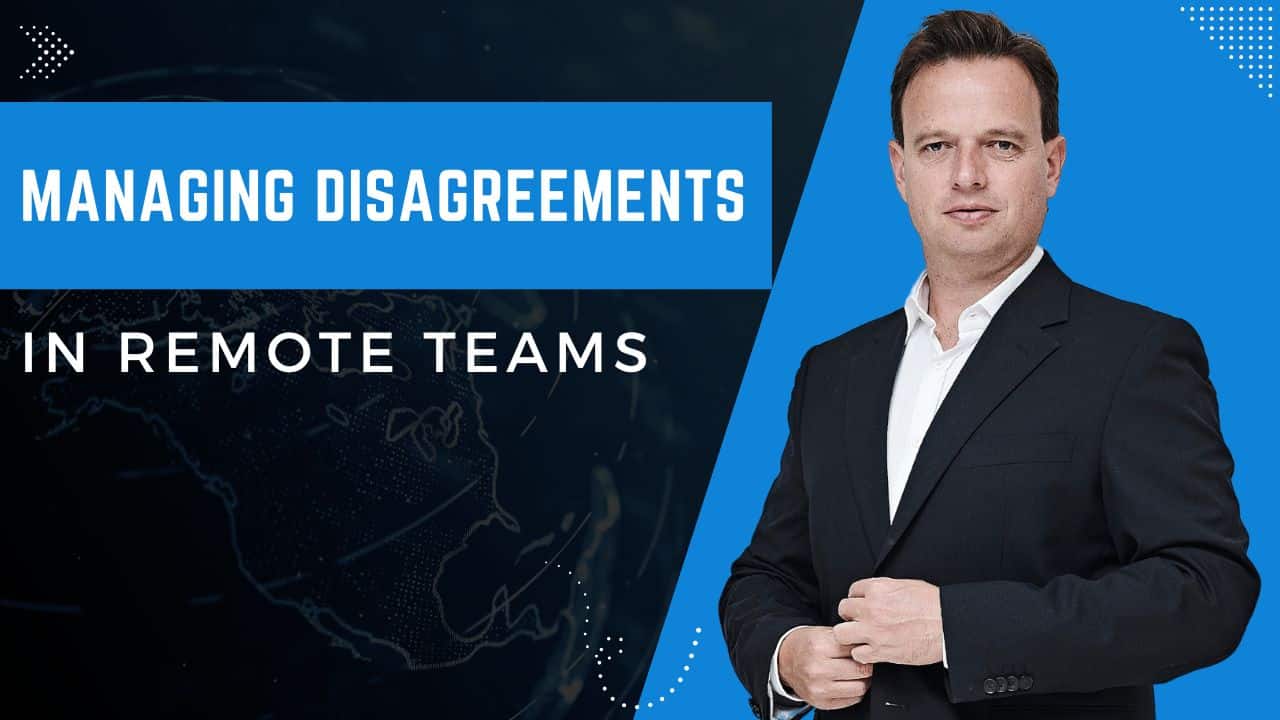Disagreements are a natural part of teamwork. Especially in remote teams.
But when small conflicts turn into regular arguments, they drain energy, slow progress, and damage trust.
In this article, I’ll show you a practical 60-minute workshop designed to help remote teams turn unproductive disagreements into constructive conversations.
Why This Matters
When team members frequently disagree over priorities, communication styles, or decision-making, it creates frustration and inefficiency.
Left unresolved, these tensions erode morale and collaboration.
Most remote teams struggle in this area because virtual communication lacks the nonverbal cues that help smooth over differences.
Without face-to-face interaction, misunderstandings escalate faster, and unresolved disagreements linger longer.
Yet, disagreement isn’t the problem. How we handle it is.
Virtual teams that manage conflicts well become more resilient, innovative, and cohesive.
What You’ll Gain from This Workshop
In this structured session, your participants will:
- Recognise the root causes of team disagreements and why they escalate.
- Learn three proven strategies for handling conflict constructively in remote settings.
- Develop skills to prevent miscommunication and improve tone in virtual conversations.
- Practice turning tense conversations into productive discussions that strengthen team relationships.
- Leave with actionable techniques to reduce unnecessary arguments and improve team harmony.
Let’s explore the full workshop plan so you can bring this framework to your team.
Managing Frequent Disagreements in Remote/Virtual Teams
Time: 60 mins
Resources Needed:
- Virtual meeting platform (Zoom, Teams, etc.)
- Shared document or collaboration board (Google Docs, Miro, MURAL, etc.)
- Polling or chat function for quick engagement
- Breakout room feature for small-group discussions
Objective
Help reduce unnecessary conflicts and create a culture where disagreements lead to productive discussions rather than arguments.
Process
1. Introduction (10 min)
- Facilitator welcomes participants and introduces the topic: “Today, we’ll explore why disagreements escalate in virtual teams and how to turn conflict into productive collaboration.”
- Poll question: “How often do small disagreements escalate into real conflict in your team? (1 = Rarely, 5 = Very often)” (Share anonymous results.)
- Discuss common reasons disagreements become arguments in remote teams, such as:
- Misinterpreted tone in written communication.
- Lack of real-time discussion leading to unresolved tension.
- Differences in work styles or unclear expectations.
2. The Conflict Challenge (15 min)
Exercise: “From Disagreement to Argument”
- Breakout rooms (3-4 people per group).
- Each group discusses:
- Think of a time when a minor disagreement escalated into an argument—what triggered it?
- What could have helped resolve it earlier?
- What’s one habit that makes disagreements worse in virtual teams?
- Groups return and share patterns they noticed in how conflicts escalate.
3. Key Strategies for Managing Disagreements (15 min)
- Facilitator introduces three key strategies for handling disagreements constructively:
- Pause before reacting. Avoid knee-jerk responses and clarify intent before escalating.
- Use structured conflict resolution. Address issues directly and focus on solutions rather than blame.
- Improve tone and clarity in virtual communication. Reframe messages to prevent misunderstandings.
- Chat question: “What’s one technique that has helped you de-escalate a disagreement?”
- Participants share ideas, and facilitator highlights key themes like empathy, active listening, and constructive language.
4. Practical Application: Reframing Conflict (15 min)
Exercise: “Turn It Around”
- Participants write down a recent disagreement or misunderstanding (anonymised if needed).
- They swap examples (or facilitator selects a few).
- Each person redesigns the conversation using one of the key strategies.
- Example transformations:
- “You never listen to my ideas.”
- “I’d like to understand how we can integrate different perspectives—can we revisit this idea?”
- Share responses and discuss how small language changes prevent conflicts from escalating.
5. Action Plan & Close (5 min)
- Each participant commits to one action they’ll take to improve how they handle disagreements in their team.
- Facilitator summarises key takeaways.
- Final poll: “How confident do you feel about managing disagreements more effectively in your virtual team?”
Conclusion
Frequent disagreements don’t have to derail your team.
When handled well, they can lead to stronger relationships, better problem-solving, and a more collaborative work environment.
Virtual teams that actively manage conflict—rather than avoiding or escalating it—become more resilient, aligned, and productive.
This workshop gives you a clear, structured approach to turning unproductive disagreements into meaningful conversations.
If unresolved conflicts are slowing your team down, don’t wait for tensions to build further.
Run this workshop, apply the strategies, and start transforming how your team navigates disagreements today.
I’d love to hear how it works for your team—let me know your thoughts!
See you next week.

